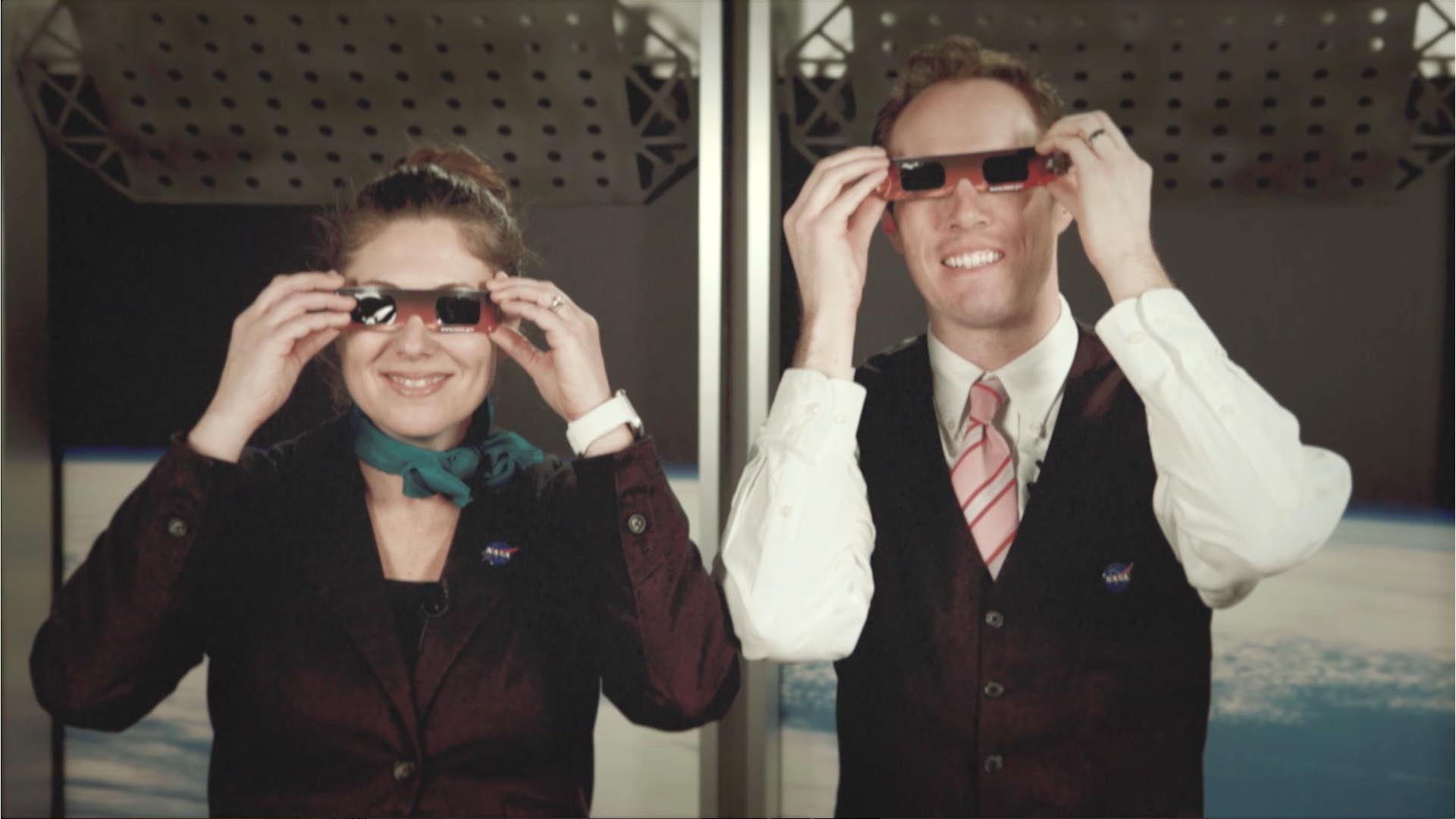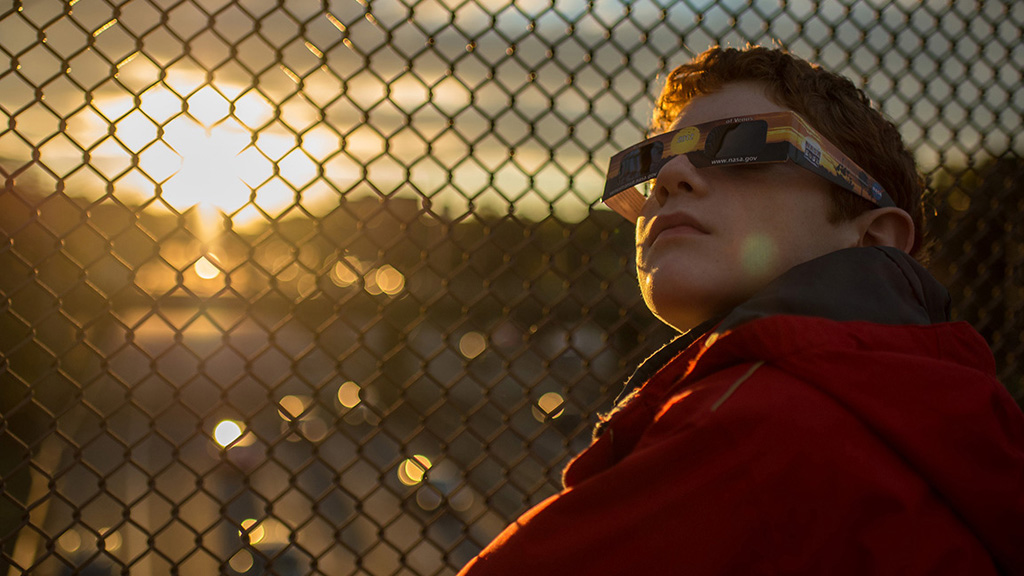A newer version of this visualization is available.
How to Safely Watch a Solar Eclipse
It is never safe to look directly at the sun's rays – even if the sun is partly obscured. When watching a partial eclipse you must wear eclipse glasses at all times if you want to face the sun, or use an alternate indirect method. This also applies during a total eclipse up until the time when the sun is completely and totally blocked.
During the short time when the moon completely obscures the sun – known as the period of totality – it is safe to look directly at the star, but it's crucial that you know when to take off and put back on your glasses.
First and foremost: Check for local information on timing of when the total eclipse will begin and end. NASA's page of eclipse times is a good place to start.
Second: The sun also provides important clues for when totality is about to start and end.
Learn more at https://eclipse2017.nasa.gov
Find more videos about the solar ecilpse on the Sun Eclipse 2017 gallery page.
For More Information
Credits
Please give credit for this item to:
NASA's Goddard Space Flight Center
Music Credit: Killer Tracks
-
Producer
- Jenny Hottle (NASA/GSFC)
-
Editor
- Jenny Hottle (NASA/GSFC)
-
Science writer
- Sarah Frazier (ADNET Systems, Inc.)
Release date
This page was originally published on Wednesday, June 21, 2017.
This page was last updated on Wednesday, May 3, 2023 at 1:47 PM EDT.
![Watch this video on the NASA Goddard YouTube channel.Complete transcript available.Music credit: "Creativity" by Max van Thun [GEMA] from Universal Production Music.](/vis/a010000/a014400/a014427/Thumbnail_01.jpg)
![Watch this video on the NASA Goddard YouTube channel.Complete transcript available.Music credit: "Synthesis" by Andy Blythe [PRS] and Marten Joustra [PRS] from Universal Production Music.](/vis/a010000/a014400/a014430/Thumbnail_01.jpg)



![Mira este video en el canal de YouTube en español de la NASA.Créditos de Música: “Perfect Horizon” por Sam Joseph Delves [PRS] de Universal Production Music](/vis/a010000/a013600/a013668/EclipseSafetyVideo_Spanish.00140_print.jpg)
